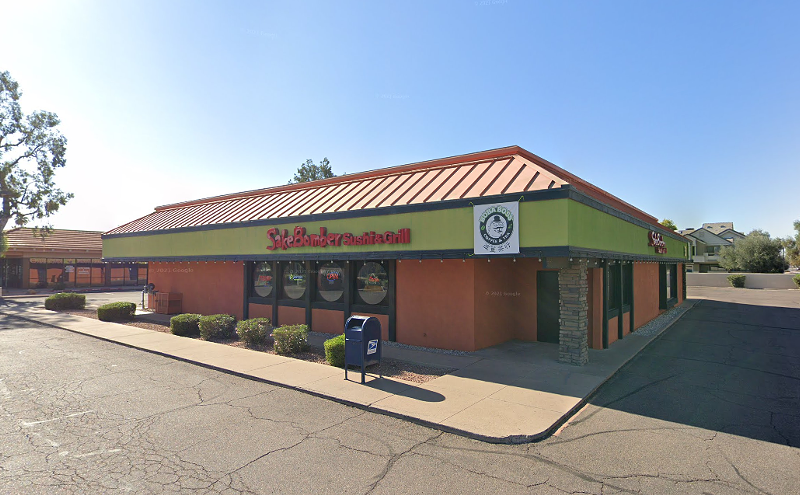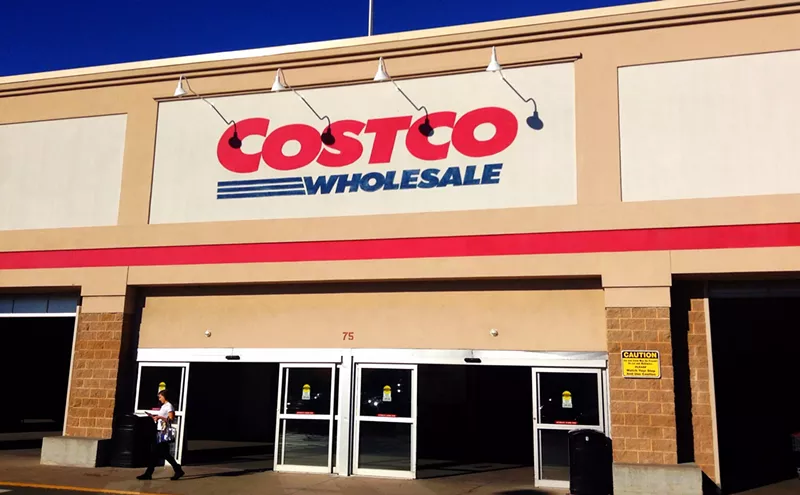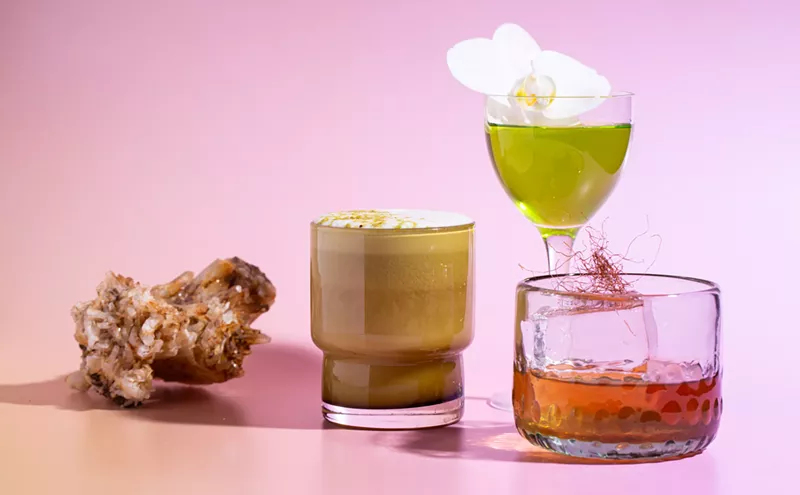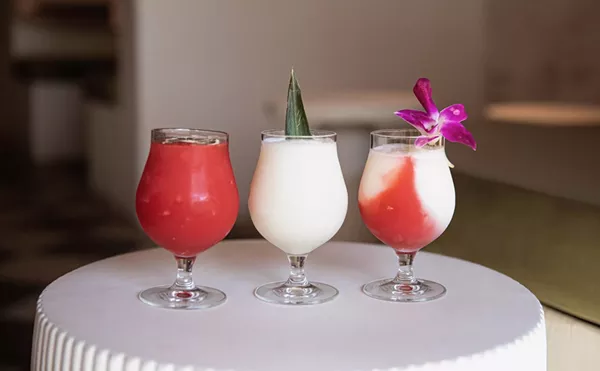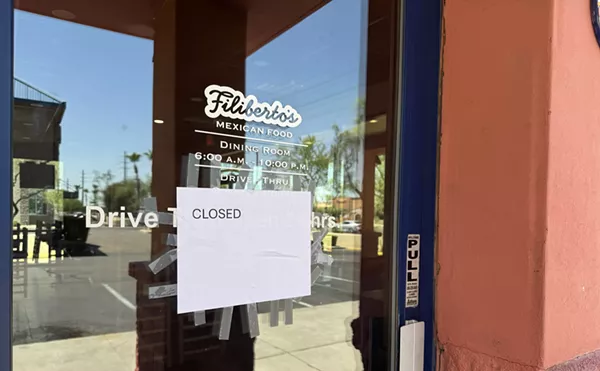Several months ago, I took part in a judging competition for a local craft beer festival. As often occurs at such ceremonies, we began the day by tasting a calibration beer -- one brew, given to every judge, that helps beer-tasters adjust their scoring so it's in line with everyone else in the room. The beer was poured was translucent and golden, with a fluffy head of pure white. Its flavor was crisp, with a soft grain flavor and a touch of corn-like sweetness. Pretty tasty, we all agreed.
Each judge's score was collected and the beer was given an average score of 40 out of 50 -- an excellent rating for any brew. Then the mysterious beer was revealed.
It was Budweiser.
I bring this up because Bud and its parent company, Anheuser-Busch InBev, have been much discussed in craft beer circles these past few nights. The debate stems from a Facebook post Oregon-based 10 Barrel Brewing Co. made Wednesday announcing that the brewery would be sold to Anheuser Busch. Beer nerds promptly lost their minds:
"This is an absolute tragedy. Seriously so bummed. Boooooo""wow, another company sells their soul to the devil."
"aww man i loved yalls beer now i know those guys are going to make it taste like crap somehow"
"At least you could have had the decency to SELL OUT to an American company."
"Fuck Budweiser and fuck 10 barrel the god damned sell outs." *
If you're not familiar with 10 Barrel, that's okay. The brewery's located in Bend, Oregon and only distributes its products in Oregon, Washington, Idaho and Vermont. But the reaction to its purchase by AB InBev is nationwide. It's similar to the feedback New York's Blue Point Brewing Co. received from fans when it sold to AB in February, and nearly identical to the backlash directed at Chicago craft brewery Goose Island when AB bought it in 2011. Were the Belgian-Brazilian brewing giant to purchase an Arizona-based brewery -- Four Peaks, SanTan or Lumberyard, for instance -- I daresay we'd be seeing the same nastiness on their Facebook pages. Why?
Two of the responses above stand out to me because they're the most commonly repeated whenever a buyout such as this occurs as well as the most misinformed. The first is that the brewers at Anheuser-Busch InBev are going to make any beer "taste like crap somehow." Budweiser, Miller Lite, Coors Banquet, Pabst Blue Ribbon and any number of other mass-produced lagers are commonly grouped into a category known as "pisswater" by craft beer fans. The idea that these beers are of low quality, however, is willfully ignorant. Ask any brewer which style he or she believes is the hardest to make -- the answer, almost every time, will be a light lager. Not only do these beers take longer to make, but their lightness of body and delicate flavors mean that the smallest mistake during the brewing process can have enormous and disastrous consequences. Flavor defects can be covered up by the citrusy flavor of hops in an IPA or a roasty dash of malt in a stout; in a light lager, there's nothing to hide behind. Even more difficult is producing this delicate, faultless beer with consistent flavor, and more difficult still is brewing a consistent beer in different states or even different countries. Anheuser-Busch InBev has some of the strictest quality control measures in the world. Beers made under their umbrella adhere to a much higher standard than any produced at a small, local brewery, and beers from any "craft" enterprise they purchase will likely increase in quality, not decrease.
The second response is much more common -- and much more venomous. This is the idea that a brewery that allows itself to be purchased by a brewing conglomerate is "selling out."
Imagine -- difficult as it may be -- that I'm a tech-savvy web programmer. Combining my techno-skills and my love for craft beer culture, I develop an app for beer geeks to upload pictures of their facial hair and share beard-grooming tips. Let's call it Beerdy.** At its launch, Beerdy sees a lot of success locally. Phoenicians buy in, and for a few months my app is the most downloaded in the local market. It's all anyone can talk about. Then, national technology magazines begin to take notice and put Beerdy on their respective lists of killer apps. People across the nation download the thing until I receive a call from Zuckerberg. He buys the app and I retire at the ripe old age of 27. Wouldn't you admire how I was able to turn my programming hobby and love of beards into something profitable? Wouldn't the initial Beerdy users -- the locals who helped build it into a worldwide phenomenon -- be overjoyed at its success?
When a similar situation occurs with brewers, the answer from beer geeks is resoundingly in the negative.
The reason, it seems, is that a large number of craft beer fans see their hobby not as an amusement, but as a movement. They aren't beer geeks; they're beer evangelists, spreading the good news of flavorful ales to a world full of sinful lager drinkers. They look up to brewers and the owners of local craft breweries as the leaders of the craft beer revolution, and this is where the danger lies. Because brewers are not Cesar Chavez or Mahatma Ghandi. For the most part, they're a bunch of slightly buzzed, middle-class dudes who wear too much plaid and don't like shaving and enjoy a good beer. They got into the industry because they thought it would be a fun way to make a living, not to change the world.
The most avid craft beer fans consider a brewer selling his business a betrayal because they view each craft beer purchase a rebellious act. They think they're owed something for their support, given through buying something they wanted. Here's the thing, though -- you are owed nothing by a brewer except a consistent, quality product. Many small, local breweries can't even deliver that.
Now, I'll be the first to tell you that there's a wild, wonderful world of beer out there to enjoy, and you're doing yourself a disservice by staying loyal to a certain brand or style of beer your entire life. But I've also never believed that the likes of AB/InBev, MillerCoors or Pabst were trying to keep me from drinking craft. To me, the mega-brewers and the small, independent beer artisans exist in two separate segments of the market. There will always be a place for local breweries in craft beer bars and bottle shops, and no amount of pushing and shoving from AB and its ilk will change that. To put it in wine terms: Franzia is not stealing customers from Caduceus.
Anheuser-Busch InBev also owns 33 percent of Widmer Brothers Brewing, but I don't avoid drinking Widmer Hefeweizen because AB happens to own a third of the company. I avoid it because it's a bland, boring example of a classic style. On the other side of the coin, I continue -- and will continue -- to buy Goose Island Bourbon County Stout because that shit is delicious no matter who signs the brewery's checks.
I've even been known to crack a Bud Light on occasion. Try it sometime -- it won't kill you.
*actual responses pulled from the comments sections of 10 Barrel's initial post and articles about it. **I just realized this is genius. I'm going to make it happen. Don't steal it.
Zach Fowle is a BJCP-recognized beer judge and a Certified Cicerone. He works at World of Beer in Tempe.



